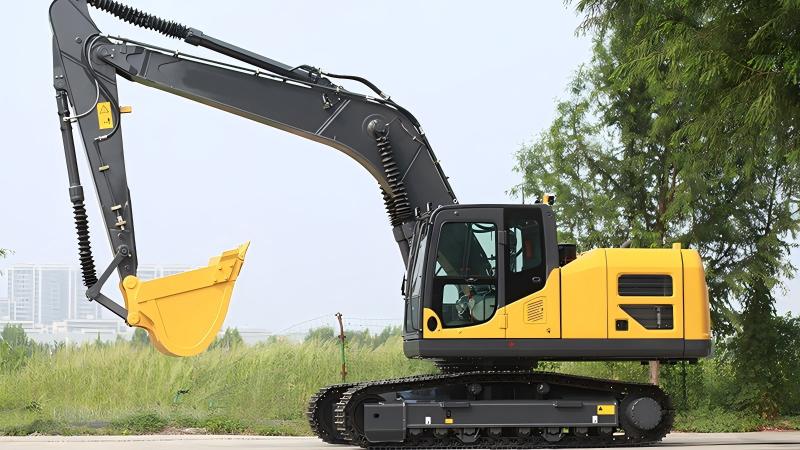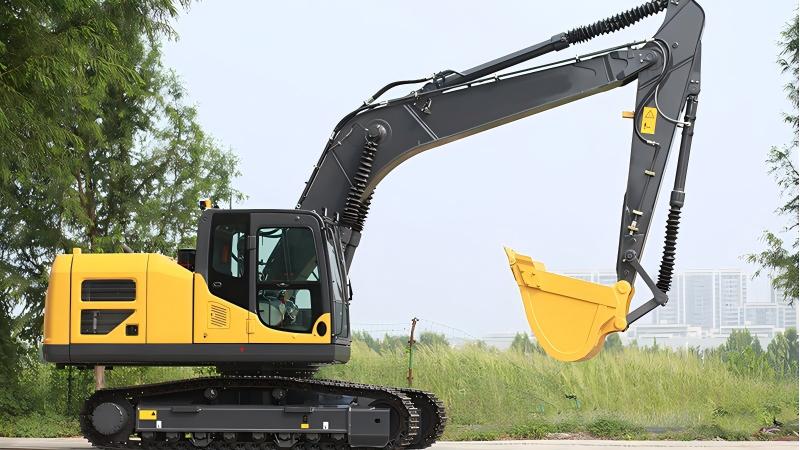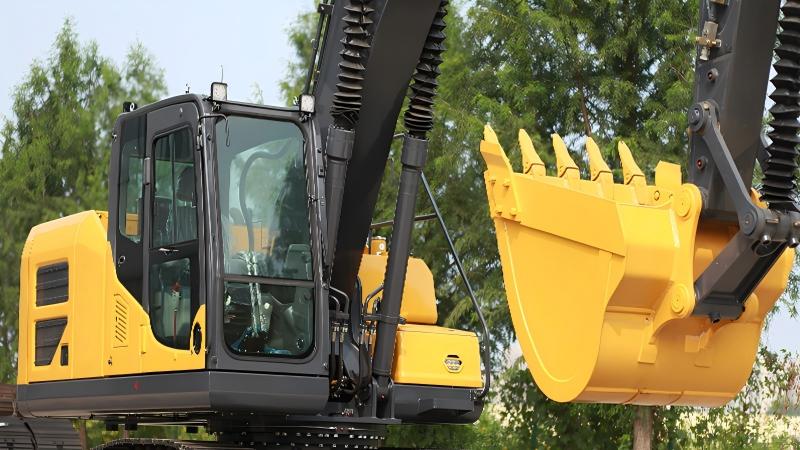Mini excavators have revolutionized the way small-scale excavation and landscaping projects are tackled. Their compact size, maneuverability, and surprising power make them ideal for jobs where larger equipment is impractical or simply overkill. But with a plethora of brands and models on the market, choosing the "best" mini excavator for small jobs can be a daunting task. This article aims to demystify the selection process by outlining key considerations and highlighting some top contenders.
What Constitutes a "Small Job"?
Before diving into specific excavators, it's essential to define what we mean by "small jobs." This typically includes:
Residential landscaping: Digging ponds, installing irrigation systems, creating garden beds, small-scale land grading.
Utility trenching: Laying electrical conduits, water lines, drainage pipes in confined spaces.
Light demolition: Removing small sheds, breaking up concrete patios, tearing out interior walls (with appropriate attachments).
Tree and stump removal: Digging around roots for easier extraction.
Footing and foundation work: For decks, small additions, or fences.
General yard work: Moving soil, gravel, or debris in tight areas.
These jobs often demand precision, minimal ground disturbance, and the ability to navigate tight gates, narrow pathways, and existing structures.
Key Factors When Choosing a Mini Excavator for Small Jobs
The "best" mini excavator isn't a one-size-fits-all answer. It depends heavily on the specific requirements of your projects. Here are the crucial factors to consider:
Operating Weight and Size:
Under 2,000 lbs (Micro Excavators): These are the smallest, often capable of fitting through standard doorways (e.g., 36-inch gates). They are perfect for extremely confined spaces, indoor demolition, and delicate landscaping. However, their digging depth and breakout force are limited.
2,000 - 4,000 lbs (Compact Mini Excavators): This is the sweet spot for many small jobs. They offer a good balance of power, digging depth, and maneuverability. Many can still fit through typical residential gates and are easily transported on a standard utility trailer.
4,000 - 8,000 lbs (Mid-Size Mini Excavators): While still "mini," these are approaching the larger end of the spectrum for small jobs. They provide more power and reach, suitable for slightly larger trenching or demolition, but their transportability might require a heavier-duty trailer and vehicle.
Digging Depth and Reach:
Maximum Digging Depth: How deep do your trenches or footings need to be? This is a critical specification. For most residential utility work, 6-8 feet of digging depth is usually sufficient.
Maximum Reach: How far out do you need to dig or dump material? Consider the distance from where the excavator sits to the target area or dump truck.
Tail Swing Configuration:
Conventional Tail Swing (CT): The counterweight extends beyond the tracks when the upper structure rotates. These are generally more stable and offer greater lift capacity but require more clearance.
Reduced Tail Swing (RTS) / Zero Tail Swing (ZTS): The counterweight stays within the width of the tracks (ZTS) or extends minimally (RTS). This is paramount for working in confined spaces, against walls, or in urban environments where space is limited. For small jobs, ZTS/RTS models are highly recommended.
Auxiliary Hydraulics and Attachment Versatility:
Auxiliary Hydraulic Flow: This determines the power available for hydraulic attachments like augers, hydraulic breakers, grapples, and mulchers. Look for models with at least one set of auxiliary lines (often called "thumb ready") if you anticipate using these tools. High-flow hydraulics are a significant advantage for demanding attachments.
Quick Coupler System: A universal or brand-specific quick coupler allows for fast and easy attachment changes, significantly boosting productivity.
Operator Comfort and Controls:
Cab vs. Canopy: For occasional use, a canopy might suffice. For longer hours or in varying weather, an enclosed cab with heating and air conditioning (HVAC) is a game-changer for operator comfort and productivity.
Controls: Pilot controls (joysticks) offer smooth, precise operation, which is highly desirable for detailed work. Foot pedals are often less intuitive for boom swing.
Visibility: Good all-around visibility from the operator's seat is crucial for safety and efficiency, especially in tight spaces.
Transportability:
Weight and Dimensions: Can you transport the excavator with your existing truck and trailer setup, or will you need to rent or invest in new towing equipment? Check your vehicle's towing capacity and trailer ratings.
Tie-Down Points: Easy and secure tie-down points are important for safe transport.
Brand Reputation and Dealer Support:
Reliability and Durability: Stick with established brands known for quality construction and long-term reliability.
Parts and Service Availability: A strong dealer network means easier access to parts, maintenance, and expert technical support, minimizing downtime.
Resale Value: Reputable brands tend to hold their value better.
Budget: New vs. Used vs. Rental:
New: Offers the latest technology, warranties, and peace of mind, but at a higher initial cost.
Used: Can provide significant savings, but requires careful inspection of the engine, hydraulics, undercarriage, and general condition.
Rental: For infrequent projects, renting can be the most cost-effective solution, eliminating storage, maintenance, and depreciation concerns.
Top Contenders for Small Jobs
Based on industry reputation, user reviews, and features ideal for small-scale applications, several brands consistently stand out:
Kubota:
Strengths: Renowned for reliability, fuel efficiency, smooth hydraulics, and a wide range of compact models. Kubota offers excellent comfort and precise controls.
Popular Models for Small Jobs:
Kubota K008-5 / U10-5: Ultra-compact, often able to fit through 36-inch gates, perfect for very tight access and delicate work.
Kubota KX018-4 / U17: Excellent balance of power and maneuverability for general landscaping and trenching, easily trailerable.
Kubota KX040-4: A larger "mini" that offers significant power for more demanding small-to-medium jobs, still highly versatile.
Bobcat:
Strengths: Known for robust construction, strong digging forces, and a comprehensive range of attachments. Bobcat excels in versatility and often features intuitive controls.
Popular Models for Small Jobs:
Bobcat E10e (Electric) / E10: Micro excavators ideal for indoor use or noise-sensitive areas, with a retractable undercarriage for narrow access.
Bobcat E20 / E26: Strong performers in the compact class, offering good digging depth and breakout force for a variety of tasks.
Yanmar:
Strengths: A pioneer in compact equipment, Yanmar mini excavators are praised for their fuel efficiency, smooth operation, and powerful hydraulics. They often feature comfortable cabs.
Popular Models for Small Jobs:
Yanmar ViO17 / ViO25: Zero tail swing models that are highly effective in confined spaces, offering good stability and digging performance for their size.
Yanmar SV08: Another very compact option for extremely tight access.
Takeuchi:
Strengths: Known for innovative designs, excellent stability, and strong hydraulic performance. Takeuchi machines are built for durability and often feature advanced operator amenities.
Popular Models for Small Jobs:
Takeuchi TB210R: Designed for extremely confined spaces, offering a good balance of power and maneuverability in a compact package.
Takeuchi TB216: A popular choice for residential and light commercial work, known for its smooth operation and reliability.
Caterpillar (CAT):
Strengths: CAT excavators are synonymous with durability, power, and extensive dealer support. Their mini excavators bring this heavy-duty reputation to a smaller scale, often with comfortable cabs and advanced features.
Popular Models for Small Jobs:
CAT 300.9D / 301.5: Ultra-compact models suitable for very tight access.
CAT 301.7D / 302.7 CR: Offer a good blend of power and maneuverability for general small jobs, with the 302.7 CR being a zero tail swing option.
Making Your Final Decision
The "best" mini excavator for your small jobs will ultimately be the one that most closely aligns with your specific needs, budget, and access requirements.
Prioritize Access: If you frequently work in tight gates or indoors, a micro or compact ZTS/RTS model is essential.
Consider Digging Needs: Match the maximum digging depth and reach to your most common tasks.
Think About Attachments: If you plan to use more than just a bucket, ensure the excavator has adequate auxiliary hydraulics and a versatile quick coupler.
Test Drive (if possible): If buying, always try to operate the machine to assess comfort, control responsiveness, and overall feel.
For many homeowners and small contractors, a mini excavator in the 2,000-4,000 lb range with zero or reduced tail swing from a reputable brand like Kubota, Bobcat, Yanmar, Takeuchi, or CAT will provide the ideal combination of power, precision, and maneuverability to tackle a wide array of small jobs efficiently and effectively. Renting first can also be an excellent way to evaluate different models before committing to a purchase.
Post time:Sep-25-2020



